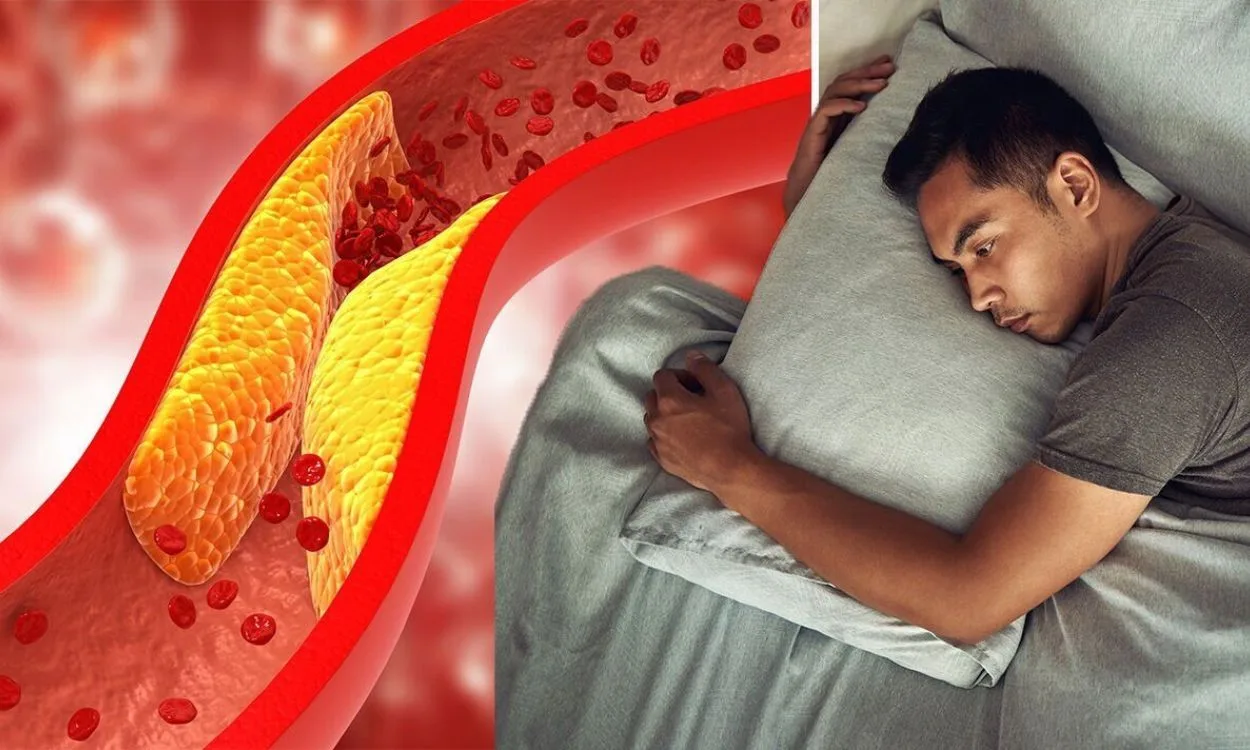How Does Sleep Quality Influence Cholesterol Levels?
Introduction
Sleep is a vital aspect of our overall well-being, influencing various bodily functions and processes. One such area that is affected by sleep quality is our cholesterol levels. Cholesterol is a waxy substance that is produced by the liver and is essential for the proper functioning of our body. However, when cholesterol levels become imbalanced, it can lead to various health issues, including heart disease.
In this article, we will explore the connection between sleep quality and cholesterol levels, and understand how a good night’s sleep can positively impact our cardiovascular health.
The Link Between Sleep and Cholesterol Levels
- Regulation of Lipid Metabolism: Sleep plays a crucial role in regulating lipid metabolism, including cholesterol synthesis and clearance. Studies have shown that sleep deprivation or poor sleep quality can disrupt the proper functioning of enzymes involved in cholesterol production, leading to imbalances in cholesterol levels.
- Inflammation and Oxidative Stress: Lack of sleep can increase inflammation and oxidative stress in the body, which can contribute to the development of cardiovascular diseases. Inflammatory markers such as C-reactive protein (CRP) and interleukin-6 (IL-6) have been found to be elevated in individuals with poor sleep, and these markers are closely associated with cholesterol imbalances.
- Hormonal Imbalances: Sleep deprivation can disrupt the hormonal balance in the body, leading to alterations in hormone levels that regulate cholesterol metabolism. For example, inadequate sleep can decrease the production of growth hormone, which is involved in maintaining healthy cholesterol levels.
- Insulin Resistance: Lack of sleep has been linked to insulin resistance, a condition where the body’s cells become less responsive to the effects of insulin. Insulin resistance can lead to higher levels of triglycerides and lower levels of high-density lipoprotein (HDL) cholesterol, also known as “good” cholesterol.
Tips for Improving Sleep Quality
Now that we understand the importance of sleep quality in maintaining healthy cholesterol levels, here are some tips to help you improve your sleep:
- Establish a Consistent Sleep Schedule: Try to go to bed and wake up at the same time every day, even on weekends. This helps regulate your body’s internal clock and promotes better sleep.
- Create a Relaxing Bedtime Routine: Develop a relaxing routine before bed to signal to your body that it’s time to wind down. This may include activities such as reading a book, taking a warm bath, or practicing relaxation techniques like deep breathing or meditation.
- Create a Sleep-Friendly Environment: Make sure your bedroom is conducive to sleep by keeping it cool, dark, and quiet. Use comfortable bedding and invest in a supportive mattress and pillow.
- Limit Exposure to Electronic Devices: The blue light emitted by electronic devices can suppress the production of melatonin, a hormone that regulates sleep. Avoid using electronic devices at least an hour before bed to promote better sleep.
- Exercise Regularly: Engaging in regular physical activity can improve sleep quality. However, avoid intense exercise close to bedtime as it may stimulate the body and make it difficult to fall asleep.
Fitpaa: Your Partner in Achieving Optimal Sleep and Health
While following these tips can greatly improve your sleep quality and subsequently impact your cholesterol levels, sometimes additional support may be necessary. Fitpaa, a leading health and fitness app, offers personalized solutions to help you achieve your health and fitness goals, including better sleep.
Fitpaa leverages the latest research in lifestyle medicine and behavioral therapy, providing you with a comprehensive approach to improving your sleep and overall well-being. Through its AI-driven technology, Fitpaa helps optimize your metabolism and offers personalized fitness plans, nutrition guidance, and cognitive behavioral therapy to enhance your sleep quality and regulate your cholesterol levels.
Whether you’re looking to improve your sleep, manage your weight, or prevent lifestyle diseases, Fitpaa’s expert team of fitness coaches, nutritionists, and doctors are there to support you every step of the way. With the Fitpaa app, you can easily track your progress, access workout plans, receive real-time guidance, and receive unlimited consultations to stay on track towards your health and fitness goals.
Conclusion
Sleep quality plays a crucial role in maintaining healthy cholesterol levels and overall cardiovascular health. By prioritizing good sleep hygiene and making lifestyle changes to improve sleep quality, you can positively impact your cholesterol levels and reduce the risk of heart disease.
If you’re ready to take control of your health and achieve your fitness goals, download the Fitpaa app today. With a team of experts and personalized solutions, Fitpaa can help you on your journey towards optimal sleep and overall well-being. Don’t wait any longer – start your transformative health journey with Fitpaa today!









